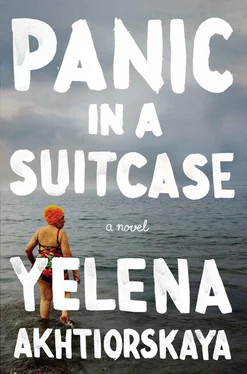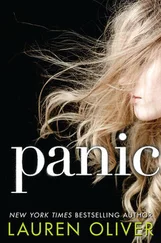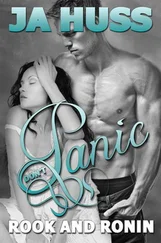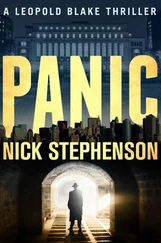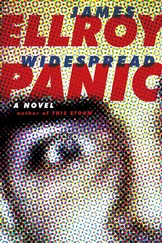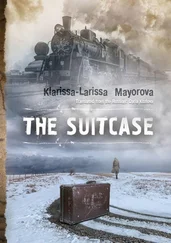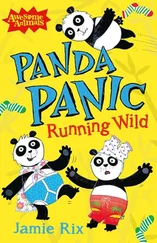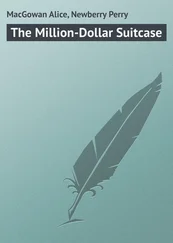Esther was rushing out of the kitchen when Pasha said, Wait. I wanted to ask you something.
Quickly!
What do you think of when I say fireplace?
Chimney sweep.
Oof, said Pasha, relieved. So you don’t think about—
The time you burned to a crisp everything precious to me in a fit of hysterical paranoia?
TAKE THE Q to 14 ST/UNION SQUARE, keep to the back of the train, get out the narrow exit behind a long-haired man tangoing with a life-size doll, cross to Virgin Megastore side of Broadway, go in direction away from George Washington on horse (numbers get smaller) until E. 4 Street, cross to corner with Tower Records, summon willpower to resist revolving doors, find door a bit farther down, tell Jamaican doorman with lazy eye you’re there for Mikhail Davidovich Nasmarkin, confirm you mean Meesha in the loft, sigh with relief as he directs you to an elevator and illuminates a button, launch up to some preposterous floor, shut eyes to avoid surfaces busy with your decrepitude.
The blob of color at the end of the hall was Misha. Gold sneakers consumed his ankles, denim shorts fell almost to those ankles, and a yellow carnation peeked out of the breast pocket of his camouflage T-shirt. Flattened by their embrace. His corkscrew brown hair could’ve been apportioned into five poodles. I can’t believe you’re actually here, he said in a way that made Pasha wonder, Why not? The next half hour was spent getting the atmosphere just right. What was Pasha’s beverage of choice? There were cocktail mixes, espresso varieties, iced herbal teas, fresh-squeezed juices, and vintage wines. Bob Dylan was laid on the gramophone but, failing to satisfy, was replaced by Charles Mingus. Misha announced them as if they were coming out onstage to perform. Pasha took a seat on a stiff couch but was moved to a stiffer couch, closer to the skylight.
I see you eyeing that beanbag, said Misha. Don’t be shy.
Pasha plopped down — it was harder than he thought.
Tell me everything, man, said Misha, sitting at last. He switched the cross of his legs. Pasha opened his mouth, but Misha stuck up a just-one-moment finger, flew out of his chair, rounded the corner, and was back with crocheted coasters for their sweating drinks. Force of habit, he apologized. But once again he was stooped over the gramophone, fidgeting with the volume knob, because Mingus was getting out of hand. Returned with a bowl of cayenne-smoked pistachios. Don’t blame me when you’re addicted. Pasha obediently popped one into his mouth. Rotated it around in his cheek. Within several seconds his eyes shrank into slits of water and a trickle could be seen dangerously near set-off in a nostril. Attempts to bite down proved futile. Misha pretended to look out the window. See that hotel across the street? he said. There’s a pool on the roof. Models sunbathe topless. He craned his neck. Not right now, though. Pasha reached for a napkin to spit out the unbroken nut. Something in the apartment intensified its whir.
Weren’t we going to go somewhere? said Pasha, sinking deeper into the chair’s loosely packed, grainy cushion.
Misha turned sharply. My place is stuffy, isn’t it?
It’s a superb apartment.
It gets OK light. I didn’t even pick it out, to be honest.
And location — it’s the artistic crux of the island, no?
Don’t remind me. The hood’s gone to shit. It wasn’t like this when I moved — much grittier.
Looked very respectable to me, said Pasha.
Exactly. There used to be bums, whores, syringes. Now it’s bearded collies and NYU baseball caps. He sighed. Where I’m taking you is the real artistic crux. It’s as avant-garde as it gets. I guess we probably should be going. We don’t want to miss the free wine.
They walked under an awry drizzle, getting sprayed in odd spurts. The sky, however, was a flat, far, uniform blue. Air-conditioner piss, Misha explained as Pasha looked up in concern.
Shopping bags knocked against Pasha’s knees. He stepped off the curb into the path of a bicycle. Misha pulled him aside. The cyclist, on a food-delivery mission, swerved and yelled, baring teeth, disappearing into traffic. Evidently, visibility was determined not by air quality but by motion. You could see for miles on end in an open field or on a beach because there was little movement to absorb. In Union Square visibility was never more than an arm’s reach. Misha indicated a turn. They veered into deeper, darker, more substantial avenues. Men on corners demonstrated the hot dog as a two-bite affair. The top of Pasha’s head felt, oddly, lower than his feet.
Misha decided to recruit an artist friend to show them around the galleries, which had only recently colonized the area and weren’t so easy to navigate. The friend was advertised as a character, one of those larger-than-life personalities, a bit of a sociopath — but who isn’t, really? — and a brilliant conceptualist. He’d be perfect for the task, insisted Misha, as if trying to convince Pasha. They stopped at a pay phone, and Misha pulled from his briefcase the fattest most bursting soggy tattered crumbling spine-disintegrating phone book Pasha’d ever seen. And a zip bag of quarters. The artist friend didn’t answer. Misha persisted, trying every pay phone they passed as if the problem were with them. When he finally got through, the conversation lasted ten seconds. The artist was reposing in his country home. Misha walked on, deep in thought. He suddenly had another friend, an art critic, who would do an even better, certainly more thorough job. In this case the conversation lasted past the minute mark, interspersed with several desperate laughs. Alas, it was a no. The art critic was staying true to his title, composing a piece of criticism due last Monday. He’s always behind, said Misha. It’s a mystery how he still gets work. They kept on. Pasha could tell that Misha’s brain kept on, too. The fire escapes, gnarled, rusted, rising, were like the waste of his thoughts. And indeed it wasn’t long before another call was placed, this time without the phone book’s assistance or any information about the man being dialed. Misha looked over both shoulders before being engulfed by the booth. Pasha stood in the center of the sidewalk until a man snagged his arm and yelled a brief phrase that definitely included fuck or fucker or fucking , a word Pasha realized he’d been waiting for. He squeezed against a building. Misha hung up. He said, I had to call back this guy, Gerbil, and he happened to ask what I was doing, so I told him, and now he wants to meet us there. That won’t be a problem, will it?
Pasha shrugged. The next pay phone was his turn.
Esther picked up in her usual way, as if distracted from battling a furious blaze. Pasha asked how she was feeling.
I feel fine, she said, then got angry. How could I possibly feel?
Maybe you need help around the house?
Are you trying to make an old woman laugh? What’s going on? Where’s Misha?
Right here.
So what are you calling for? Enjoy yourself! Have fun! Don’t come back till next week. Give Misha a big hello. Better yet, pass on a kiss.
My mom wants to adopt you, Pasha said as they resumed their trek.
Perfect timing — mine’s just about ready to disown me.
Your mom worships you.
First of all, said Misha, you don’t know. You haven’t seen the woman in ages. She’s down to ninety pounds and comes with a crew of surgeons. She looks like a tiny greased mannequin. But somewhere inside there’s a pea-size gland where all the remaining humanness is concentrated, and this gland wants one thing. A grandchild. That’s all. No substitutions. A goddamn grandchild. She says to me whenever we talk — which, yes, is still daily — that it doesn’t even matter what kind, a girl, a boy, sick, healthy, even a mulatto, anything with a heartbeat and tiny feet at this point.
Читать дальше
